Reduce the fast pace, release tension and rediscover good mood every day.
St. John’s wort (Hypericum perforatum) is a herbaceous plant with yellow flowers that is part of the Hypericaceae family. It is native to Europe, but can now be found in other temperate regions around the world. St. John’s wort has been known for centuries for its medicinal properties and has been traditionally used to treat various ailments.
The plant usually grows in sunny areas, on plains, on roadsides, in gardens and pastures. It is easily recognized by its yellow star-shaped flowers and perforated leaves that, when held against the sun, appear to be full of small holes, hence its botanical name, “perforatum”.
How to harvest St. John’s wort to preserve the plant’s beneficial compounds?
St. John’s wort flowers are often harvested between June and September, when the plant is in bloom and has the highest concentration of beneficial substances. To ensure the maximum quality and effectiveness of these flowers, it is essential that they are grown according to organic standards, guaranteeing that they do not contain pesticide residues or other harmful chemicals.
Choosing the right time to harvest St. John’s wort flowers is crucial. It is recommended to harvest them on dry, sunny days, to avoid the presence of excess humidity that can lead to mold or degradation of the quality of the flowers. The flowers are picked before lunch, as the morning is when the content of active substances is highest.
St. John’s wort and its use in traditional medicine
In traditional medicine, St. John’s wort has been used mainly for its calming and antidepressant properties. The active substances in the plant, such as hypericin and hypericin, have been associated with beneficial effects on the nervous system and mood. These compounds appear to influence the level of neurotransmitters in the brain, such as serotonin, dopamine and noradrenaline, which play an important role in regulating mood and emotions.
Rich in compounds beneficial to the body, St. John’s wort contains volatile oils, flavonoids, hypericin, organic acids (caffeic, chlorogenic), tannins, anthracene derivatives (hypericin, pseudohypericin), resins, choline and beta-carotene, which give the medicinal plant multiple beneficial actions.
The chlorogenic acid, hypericin and pseudohypericin in the composition contribute to the antiseptic, anti-inflammatory, decongestant, disinfectant, astringent and healing properties of the plant. At the same time, the bitter substances in St. John’s wort have a cholagogue action, stimulating digestion and reducing gastric acidity. The flavonoids in the composition act as vasodilators and hypotensives, helping to eliminate excess water from the body.
Calming the nervous system
Another valuable characteristic of St. John’s wort is its calming and sedative action on the nervous system, due to the volatile oils and choline in the composition. These properties make St. John’s wort a useful natural remedy in managing stress, psychomotor agitation and nervous disorders.
Studies and medical practice have shown that St. John’s wort can also be effective in alleviating symptoms of depression, anxiety and depressive states associated with menopause. Due to these multiple health benefits, St. John’s wort remains one of the most valuable medicinal plants, appreciated for its natural therapeutic effects.
Stress and its negative effects on gastrointestinal and cardiovascular health
Stress is the body’s natural reaction to difficult, tense or dangerous situations. During stress, the body releases hormones such as cortisol and adrenaline to prepare the body to face challenges. In certain situations, stress can negatively affect the gastrointestinal and cardiovascular systems, causing some unpleasant symptoms.
St. John’s wort can play a beneficial role in managing and improving symptoms associated with irritable bowel syndrome, gastritis, and gastric ulcers, as it has anti-inflammatory, antiseptic, and calming properties on the nervous system.
Effects of stress on the gastrointestinal system:
- Digestive problems: Stress can affect intestinal motility and gastric acid secretion, leading to digestive disorders such as diarrhea, constipation, nausea, or abdominal pain.
- Irritable bowel syndrome (IBS): People with chronic stress can develop IBS, a condition characterized by abdominal pain, bloating, diarrhea, and/or constipation.
- Gastric or duodenal ulcer: Chronic stress can worsen the symptoms of an already present ulcer or contribute to the development of a new one.
- Gastroesophageal reflux: Stress can lead to increased gastric acid secretion, causing acid reflux into the esophagus and causing heartburn.
St. John’s wort is recommended for various conditions, including hyperacid gastritis, gastroduodenal ulcer, enterocolitis, biliary dyskinesia, and hepatitis, having beneficial effects in treating these digestive problems. It can also be used in cases of fluid retention, manifested by edema or ascites, and in cases of hypertension caused by nervous factors.
In the case of irritable bowel syndrome, stress can be a trigger for symptoms such as abdominal pain, bloating and changes in bowel movements. St. John’s wort can help reduce inflammation in the gastrointestinal tract, which can help relieve the discomfort and pain associated with this condition.
In the case of gastritis and gastric ulcers, stress can worsen the inflammation of the stomach lining, which can lead to discomfort, heartburn and pain. Through its anti-inflammatory and antiseptic properties, St. John’s wort can help reduce inflammation in the stomach and protect the gastric mucosa. Its calming effects may also help reduce anxiety and stress, which can worsen symptoms of gastritis and stomach ulcers.
Effects of stress on the cardiovascular system:
- Increased blood pressure: Stress triggers the release of hormones that cause blood vessels to constrict, which can increase blood pressure.
- Tachycardia: Stress can speed up the heart rate, which can lead to a faster pulse.
- Risk of cardiovascular disease: Chronic stress, if not properly managed, can increase the risk of cardiovascular diseases, such as high blood pressure, atherosclerosis, and heart attack. myocardial.
It is important to manage stress effectively to prevent these negative health effects. Relaxation techniques, regular exercise, meditation, yoga, and a balanced diet can help reduce stress and maintain optimal gastrointestinal and cardiovascular health.
St. John’s wort tea or St. John’s wort extract?
Using a St. John’s wort supplement and drinking St. John’s wort tea can benefit the body, but choosing a natural St. John’s wort extract supplement offers you:
- Higher concentration of active compounds
St. John’s wort supplements are often super concentrated and can provide a higher dose of active compounds, such as hypericin and pseudohypericin, than a cup of tea.
A single capsule of St. John’s wort supplement contains 500 mg of St. John’s wort extract, while in a cup of St. John’s wort tea the amount of dried herb infused can vary between approximately 1-4 grams.
- Ease of administration
St. John’s wort supplements come in the form of vegetable capsules, which makes them easy to administer and suitable for those who want to consume a precise and constant dose.
They are easy to transport and administer in any circumstances.
- Suitable for specific situations
Supplements may be recommended by healthcare professionals to address certain conditions or specific symptoms, such as mood disorders or anxiety.
St. John’s wort extract benefits and contraindications:
Neurocerebral system
- Provides a state of relaxation, good mood and inner peace;
- Combats depressive states, anxiety or insomnia, providing support for mental health and good mood;
- Helps reduce anxiety, panic attacks, nervousness and irritability;
- Contributes to quality sleep, contributing to a deeper and more relaxing rest;
- Its antioxidant action is important in protecting the body against cellular damage and can reduce the risk of neurodegenerative diseases;
- It supports emotional balance and helps keep stress under control;
- It alleviates migraines, having calming properties that can bring relief in the case of headaches.
Gastrointestinal system
- Ensures the normal functioning of the hepatobiliary system and supports liver detoxification, contributing to the health of internal organs;
- Helps to relieve digestive disorders such as bloating, nausea and abdominal discomfort;
- Contributes to reducing inflammation, which makes it useful in reducing inflammation in the gastrointestinal tract;
- Helps to fight infections, being able to contribute to fighting bacterial or viral infections that can affect the digestive tract;
- Improves flu and cold symptoms, thanks to its antiviral and antiseptic properties;
- Contributes to alleviating stomach pain and improving digestive problems, promoting better functioning of the system digestive.
Cardiovascular system
- Helps maintain normal blood pressure, being beneficial for cardiovascular health;
- St. John’s wort contributes to reducing inflammation in blood vessels and the cardiovascular system, which can be a risk factor for cardiovascular disease;
- Provides antioxidant protection for cells of the heart and cardiovascular system;
- Supports the health of blood vessels by maintaining elasticity and reducing the risk of atherosclerosis;
- Helps support normal cardiac function.
Composition
Nutritional information / 1 vegetable capsule (600 mg):
| St. John’s wort (Hypericum perforatum) 4:1 extract from aerial parts | 500mg |
|---|
Mode of administration:
One vegetable capsule per day. Up to 2 vegetable capsules per day can be administered.
Contraindications:
- Drug interactions: St. John’s wort may interact with various medications, including antidepressants, anticoagulants, oral contraceptives, cardiovascular medications, and others. These interactions may affect effectiveness or cause side effects.
- Hypersensitivity: People with a sensitivity or allergy to St. John’s wort or plants in the Hypericaceae family should avoid using it.
- Avoid during pregnancy and breastfeeding: St. John’s wort supplements are not recommended during pregnancy or breastfeeding, as they may affect fetal development and may pass into breast milk.
- Avoid in case of photosensitivity: St. John’s wort may cause sensitivity to sunlight (photosensitivity), which can lead to skin burns or irritation. It is recommended to avoid excessive sun exposure or use adequate sunscreen.
- Medical conditions: People with certain conditions, such as major depression, bipolar disorder, severe anxiety, or epilepsy, should be cautious before taking St. John’s wort supplements, as they may affect their health.
Recommended for:
- Anxiety, mild and moderate depression, panic attacks, restlessness, nervousness, irritability, hysteria, post-traumatic stress disorder and eating disorders;
- Headaches, migraines, insomnia, chronic fatigue;
- Withdrawal, hyperactivity;
- irritable bowel syndrome, gastritis, gastric ulcer or gastroesophageal reflux disease.
- Heart disease, high blood pressure, heart palpitations, strokes;
- Bronchial asthma or allergic rhinitis.
Can be associated with:
Rhodiola 500 mg: together with St. John’s Wort Extract 500 mg can provide additional support for managing stress and anxiety.
Ashwagandha KSM-66 500 mg: the combination with St. John’s Wort Extract 500 mg can provide a synergistic effect for managing anxiety and emotional tension.
Valeriana Extract 500 mg: combined with St. John’s Wort Extract 500 mg can help maintain relaxation and inner peace, contributing to quality rest.
Natural Marine Magnesium: in combination with St. John’s Wort Extract 500 mg reduces muscle tension and stress.
Mega Omega-3: combined with St. John’s Wort Extract 500 mg can contribute to maintaining mental and emotional health.
Probiotic Complex: in combination with St. John’s Wort Extract 500 mg, probiotics can support digestive health and general well-being.
Vitamin D3 4000 IU: combined with St. John’s Wort Extract 500 mg can enhance their beneficial effects on mood and general health, contributing to maintaining an optimal state of well-being.
Hawthorn Extract 500 mg: in combination with St. John’s Wort Extract 500 mg, which has relaxing and anti-stress effects, Hawthorn can support heart health and blood circulation, thus having a beneficial effect on the entire body.
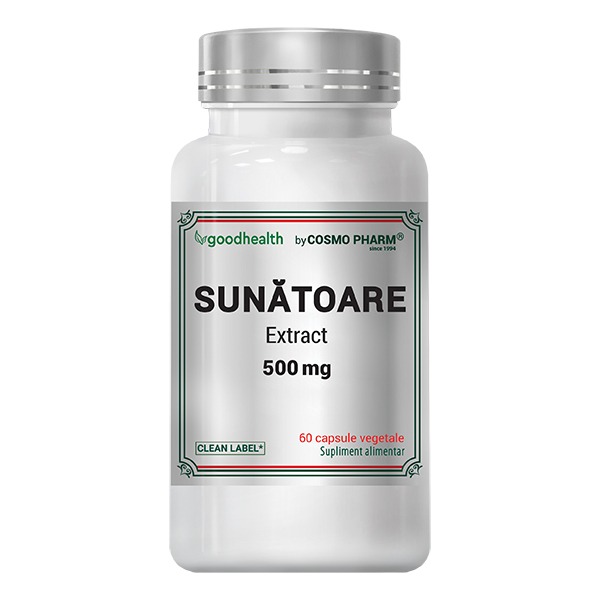
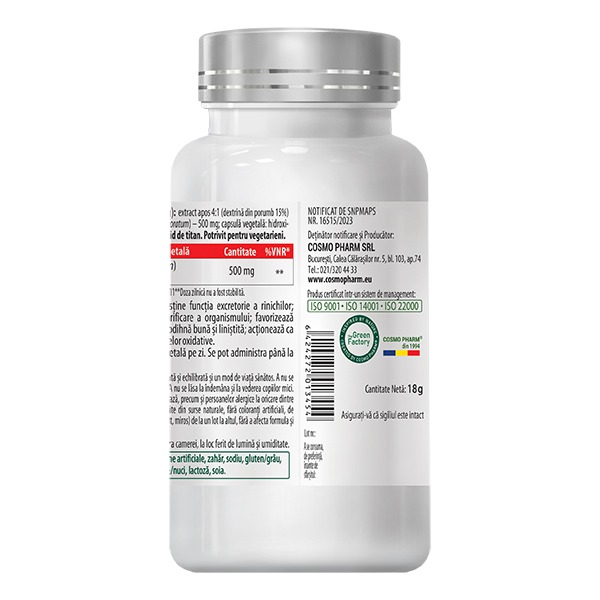
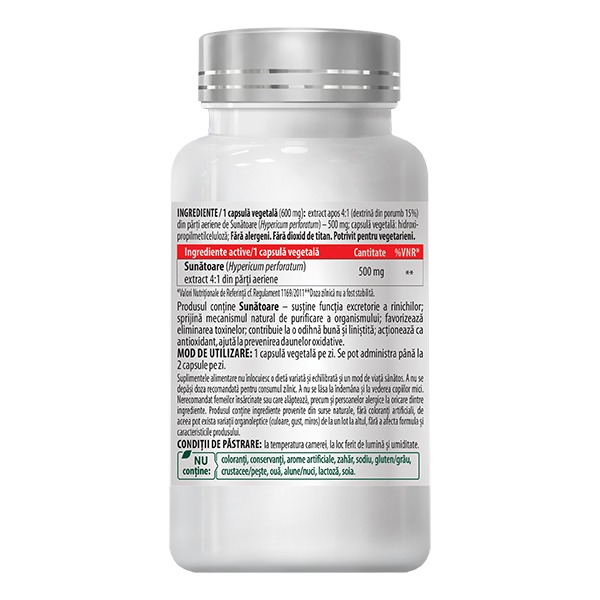

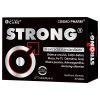
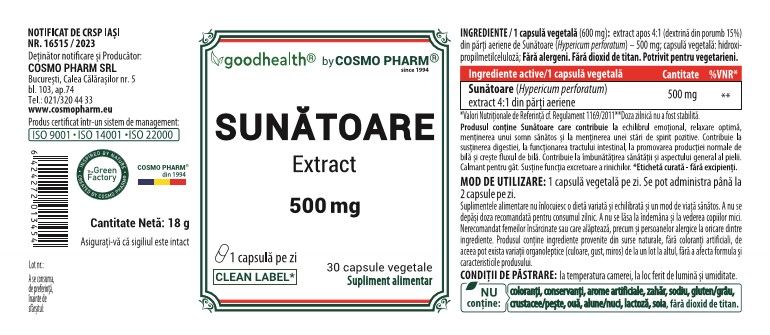
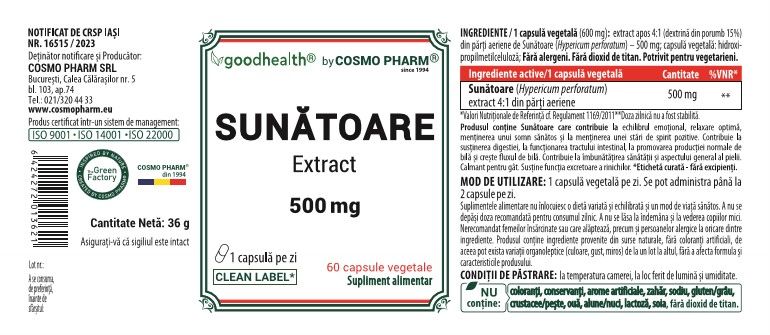
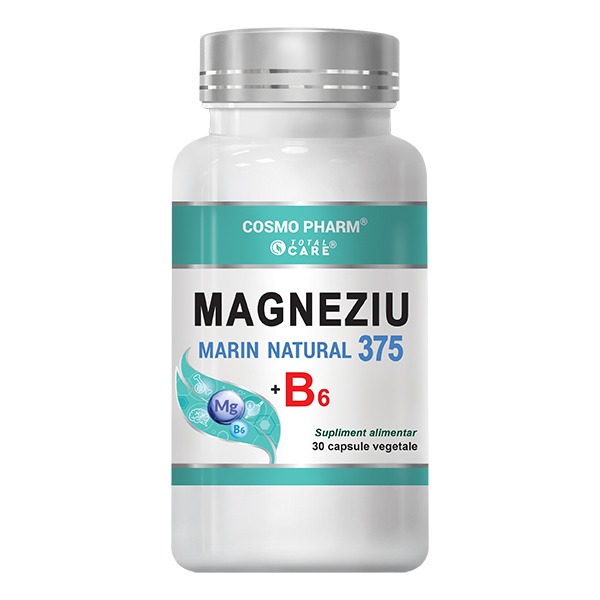
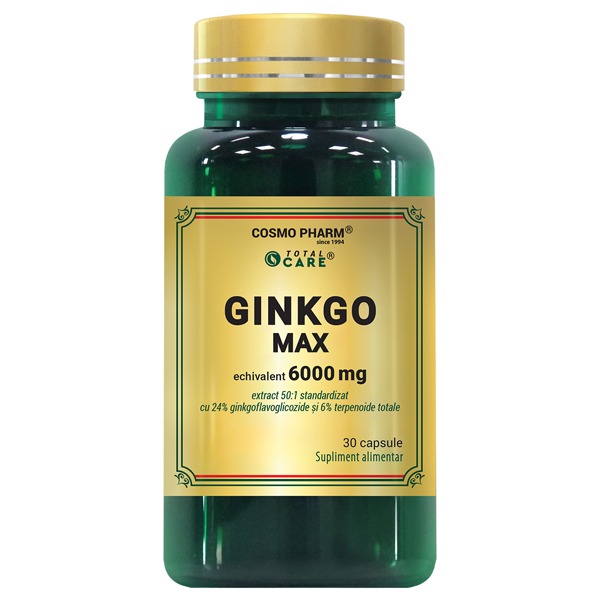
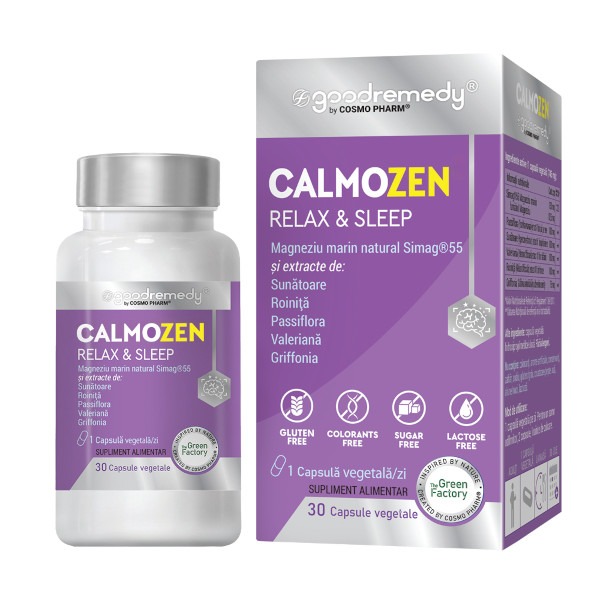
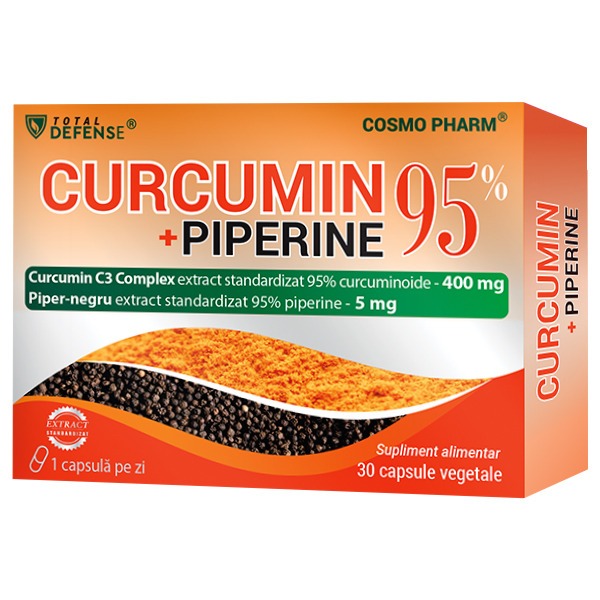
Reviews
There are no reviews yet.